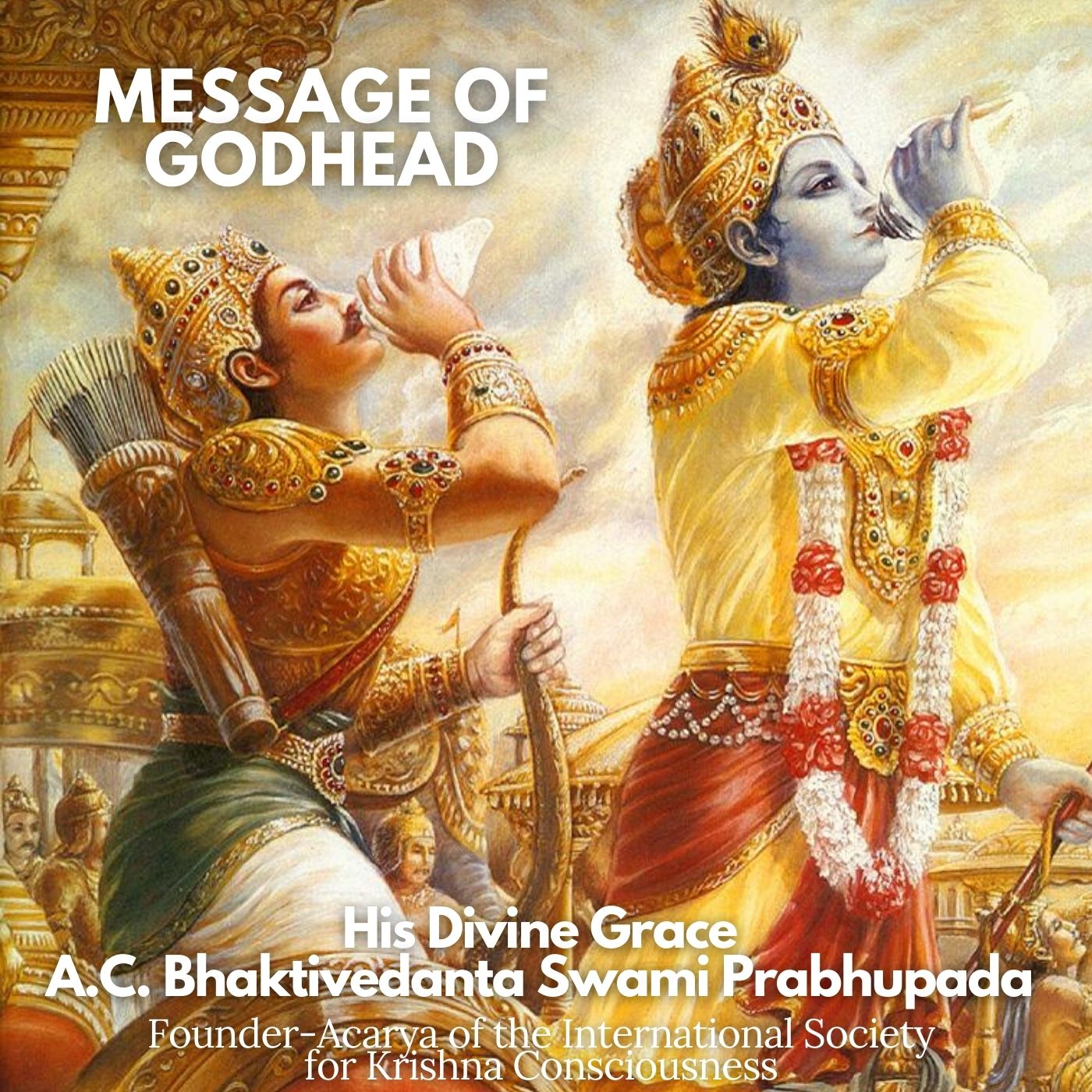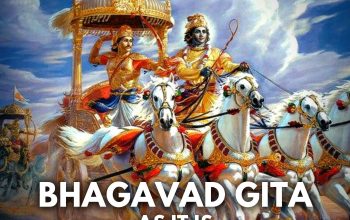This is literally the first book ever written by Srila Prabhupada back in 1950s. It’s such a must-read for everyone. If you’ve ever questioned what is free will in relation to the all-powerful, all-controlling God – read this book. If you ever thought that a regular Hare Krishna devotee is a lazy fellow that should “get a job” – definitely read this book, you’ll be surprised. All the Hare Krishnas mentioned in this book are hard-working expert professionals because they do their “job” in loving service to the Supreme Lord, which is a much higher motivational power than anything ever imagined. And believe it or not, it’s not just a religious sentiment, it’s a real interactive relationship with the Supreme Lord. So take responsibility for Your life by hearing the message from the all-powerful and all-controlling Godhead about how you can use your tiny minute independence in the best possible and eternally rewarding way! Sometimes I wonder do people really understand that when we write “eternal”, “all-powerful”, “highest”, and all these words – that we actually mean it? That it’s like the real thing? It’s not a marketing technique to attract an innocent, naive crowd of people and make a buck? I sure pray and hope that now we’ve made it clear.
Episodes playlist 055-068

Reading books by Srila A.C. Bhaktivedanta Swami Prabhupada daily. Each of these books is a literary masterpiece, they have all the answers to any questions of life and everything necessary to uplift and nourish our soul, develop our loving relationship with God, Krishna, and help us relish our adventurous spiritual journey. Such a deep, bonafide, theological science based on Vedic scriptures has never been presented like this before. Chant Hare Krishna, dive into these books, be happy and make others happy! From Mayapur with love, Your humble servant, Sulalita devi dasi
I am so excited to begin this book, in this episode we read the introduction, where the author speaks about theistic conceptions of the present society, the Absolute Truth, transcendentalists & rehabilitation of the human race towards uplifting spirituality (“Message of Godhead” pages 1-6) The book can be read, purchased or ordered at biglink.to/messageofgodhead

One of my favorite quotes
Message of Godhead | Chapter 3 “Karma-yoga: Work with Transcendental Results”
Such pure-in-heart transcendentalists know that although the living entity is very insignificant, he is part and parcel of the Absolute Truth and so has a proportionate measure of independence. And although the Personality of Godhead is all-powerful, He never interferes with this little freedom that the living entity enjoys. Thus the living entity sometimes becomes conditioned by the modes of nature, simply by abusing his small measure of independence that he is entitled to enjoy. When he becomes conditioned by nature’s modes of goodness, passion, or ignorance, he develops those respective qualities of goodness, passion, and ignorance. As long as the living entity remains conditioned by material nature, he has to act according to his particular mode of nature. If these modes were not acting, then we would not have observed in the phenomenal world different varieties of activities. These different varieties of activities are conditioned by the different modes of nature.
Therefore, without knowing the subtle laws of nature, if we tried to justify all our deeds as influenced by the will of the Personality of Godhead, we would be attempting to bring partiality, inebriety, and gracelessness into the acts of the all-good Personality of Godhead. It should never be imagined that various mundane discrepancies arise by the will of the Personality of Godhead – that some are happy by His will, while others are unhappy by His will. Such differences in the material world are due to the proper or improper use of free will enjoyed by the individual living entity. Kṛṣṇa, the Personality of Godhead, enjoins everyone to give up all such conditional engagements dictated by the various modes of nature. Such varieties of engagements of the living entity arise out of ignorance perpetuated by the modes of nature. Therefore, the Lord says in Bhagavad-gītā (5.13) that He is not the cause of anyone’s particular work, nor the authority, nor the result of such work – but that all these come out of the various modes of nature. Thus, all acts performed by the living entity – except those with transcendental results – are self – created engagements arising from an abuse of the free will, and therefore such acts or engagements are never to be considered as if the works and the results were somehow ordained by the almighty Godhead. Such works are all material and are therefore conditioned and directed by the modes of nature. The Personality of Godhead has nothing to do with such works.
Similarly, the karma-yogī exists always in a transcendental position, far away from the conditions of the modes of nature, for all his works attain to the platform of the Absolute. When one is in a state of freedom from the modes of nature, the phenomenal world manifests its noumenal feature – its spiritual aspect. With the world thus spiritually manifest, its modes of nature, such as goodness, passion, and ignorance, cannot present any obstacle to one’s spiritual advancement. When such obstacles are surpassed, one attains to the absolute vision.
Bhagavad-gītā (5.17) further elucidates that when a learned man attains to absolute vision, he can observe every living being – whether a learned and gentle brahmaṇa, a cow, an elephant, a dog, or a dog-eater – with equanimity. A learned and gentle brahmaṇa is the embodiment of nature’s mode of goodness. Among the beasts, the cow is the embodiment of this same mode of goodness. The elephant and the lion are embodiments of the passionate mode of nature, while the dog and the caṇḍāla (dog-eater) are the embodiments of nature’s mode of darkness, or ignorance. However, instead of focusing on the various external tabernacles of these living entities (their embodiments under various modes of nature), with his absolute vision the karma-yogī penetrates to the spirit which is embodied therein. And because this infinitesimal spirit emanates from the infinite Supreme Spirit, the karma-yogī in the highest state can observe everyone and everything with equanimity. Such a karma-yogī views everything in relation to the Absolute, and therefore he engages everything in the transcendental service of the Absolute. He observes all living entities as so many transcendental servitors of the absolute Godhead, Śrī Kṛṣṇa. His perfect spiritual vision cannot but penetrate the encagement of every material body, just as a red-hot iron cannot but burn everything that it contacts. Thus, the karma-yogī sets an example of transcendental character, by engaging everyone and everything in the transcendental service of the Personality of Godhead.



